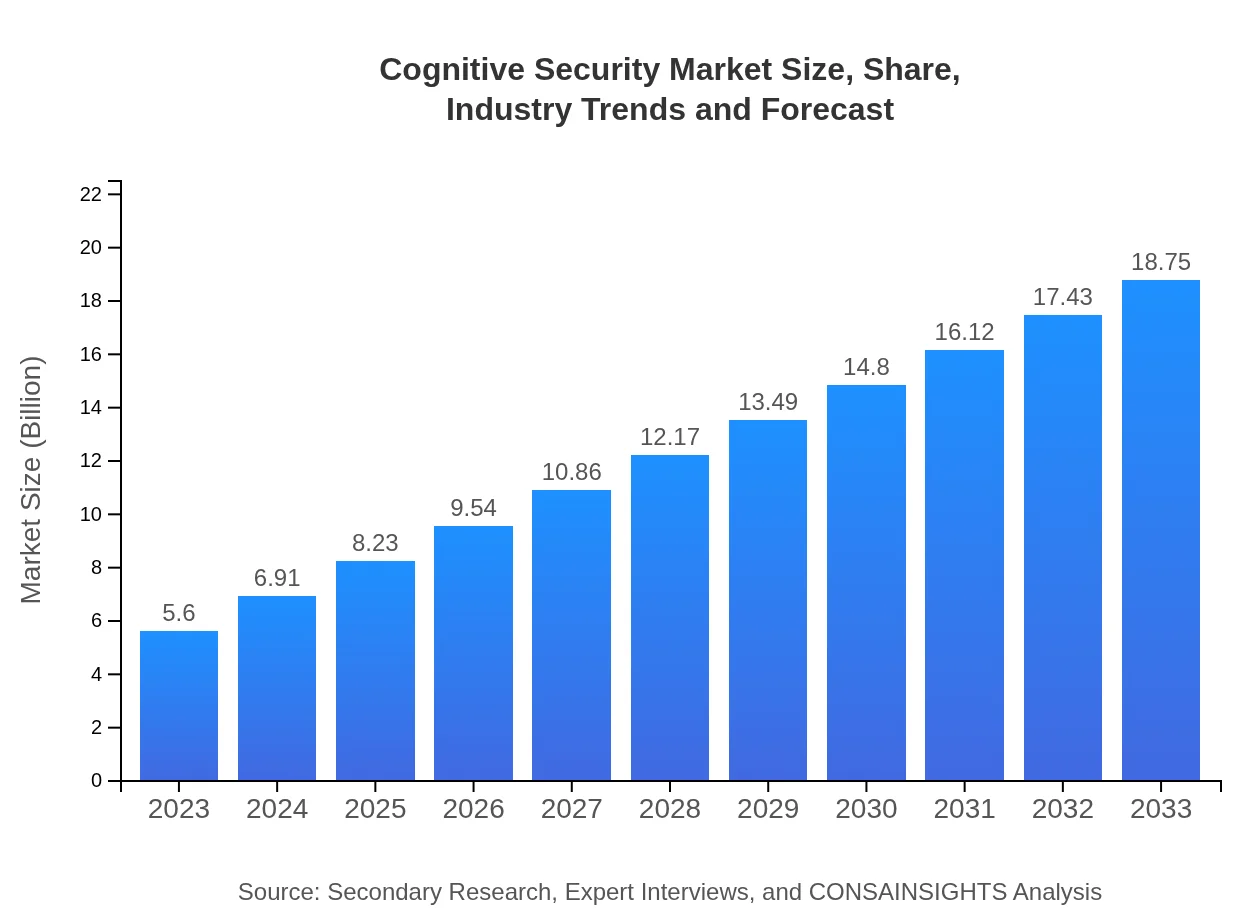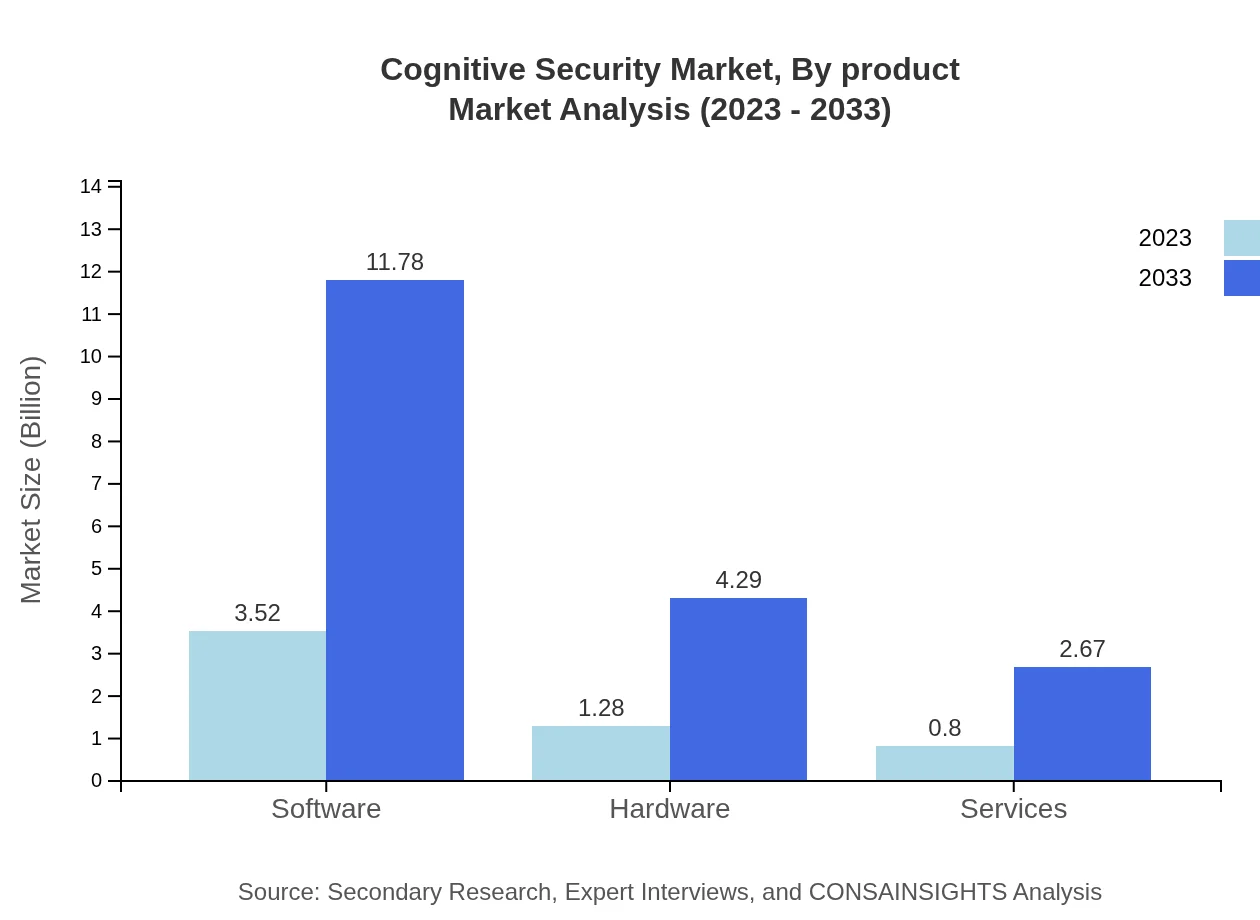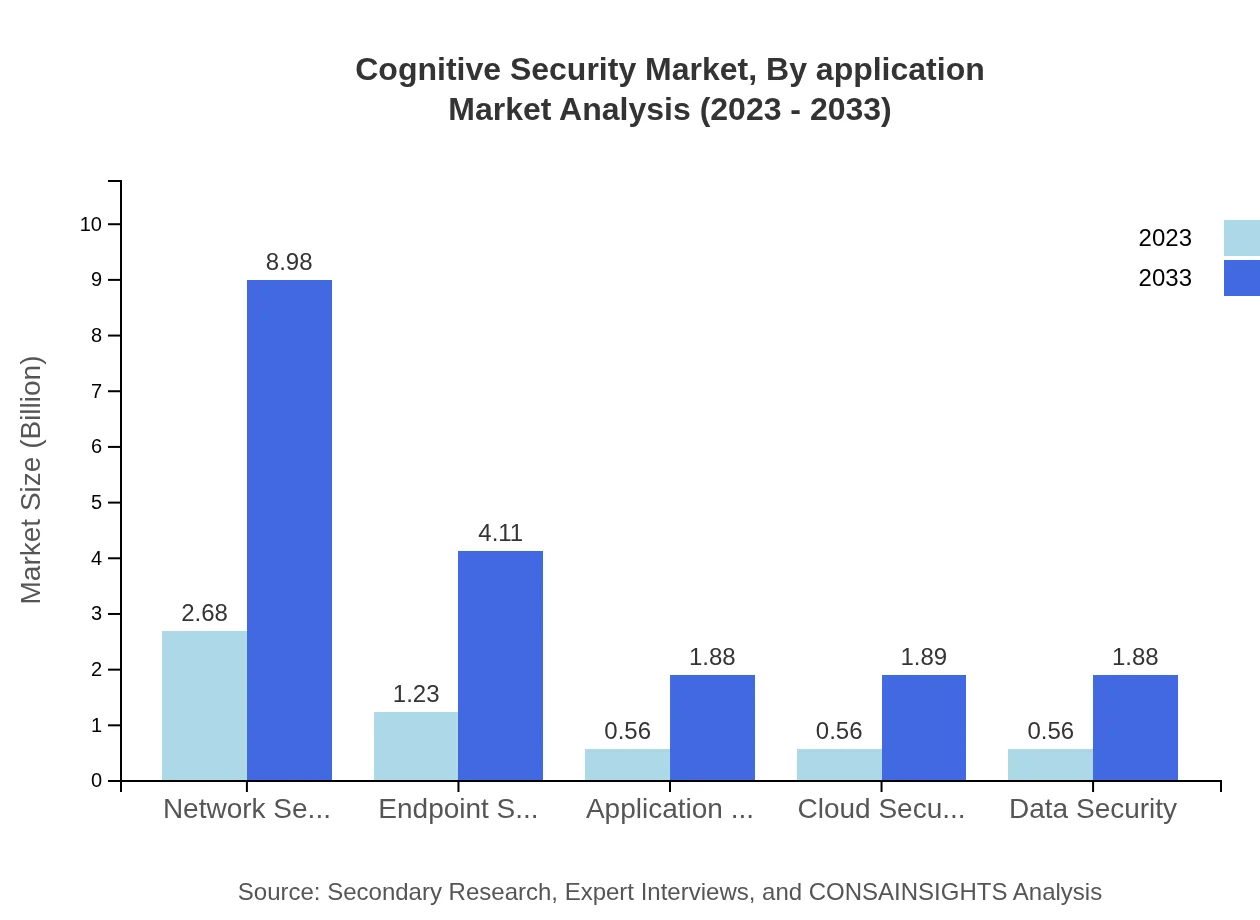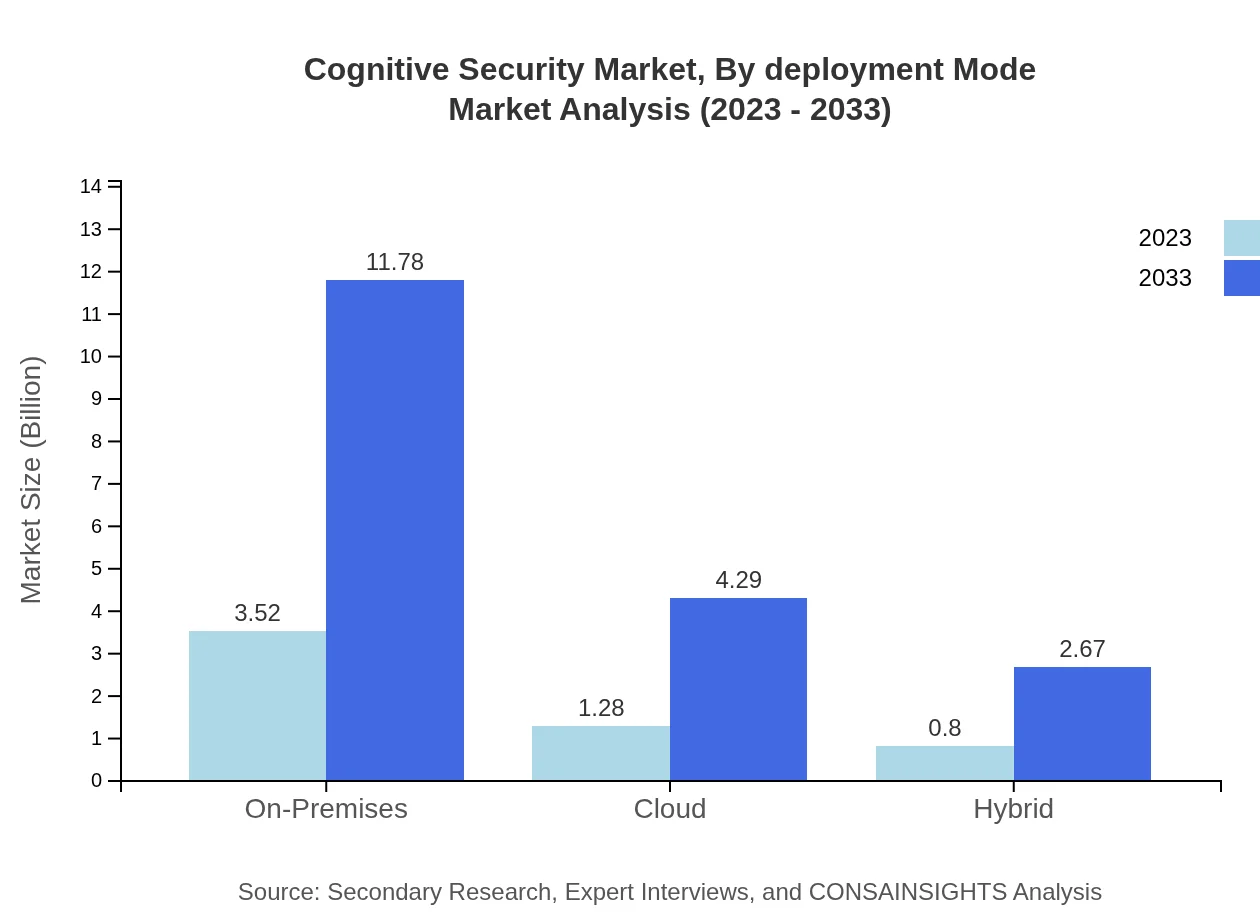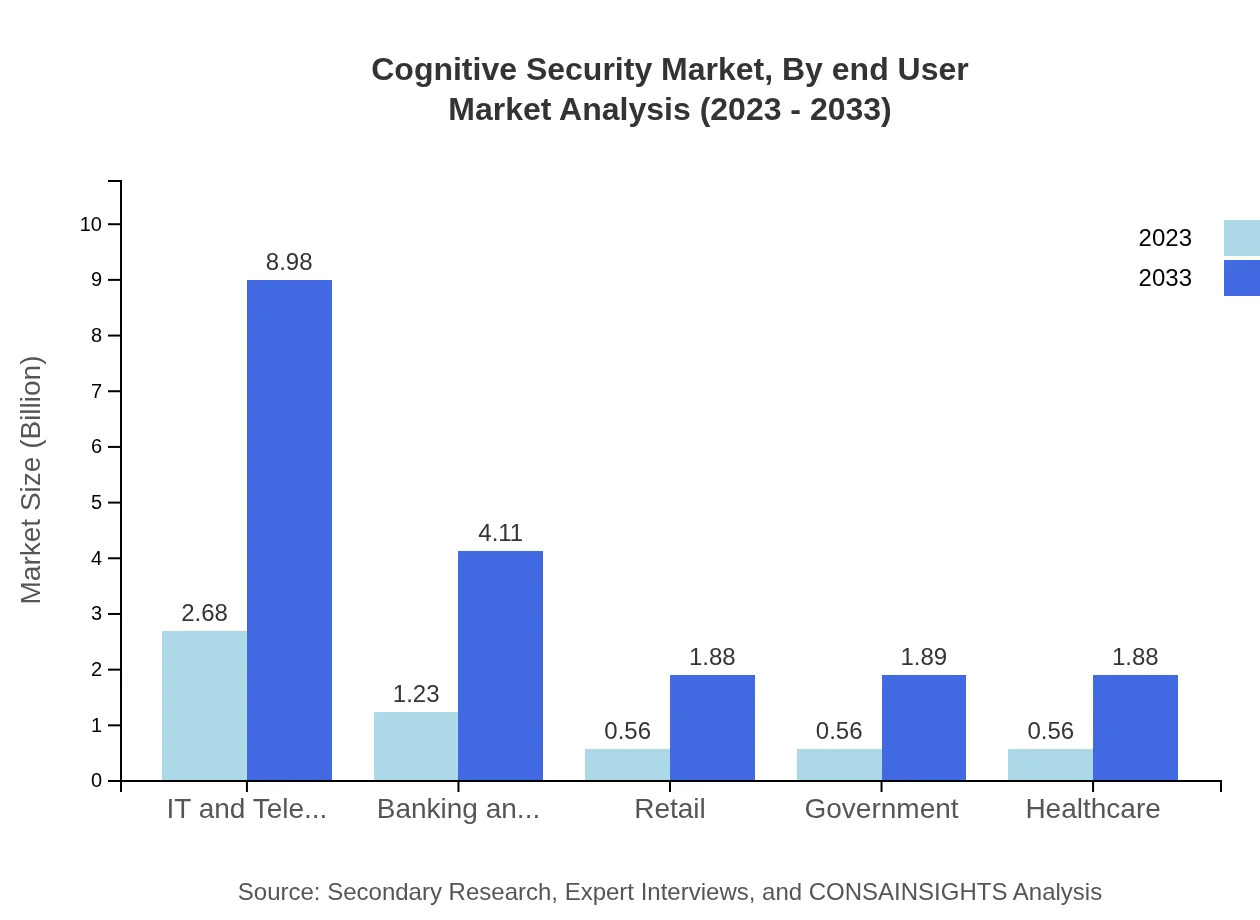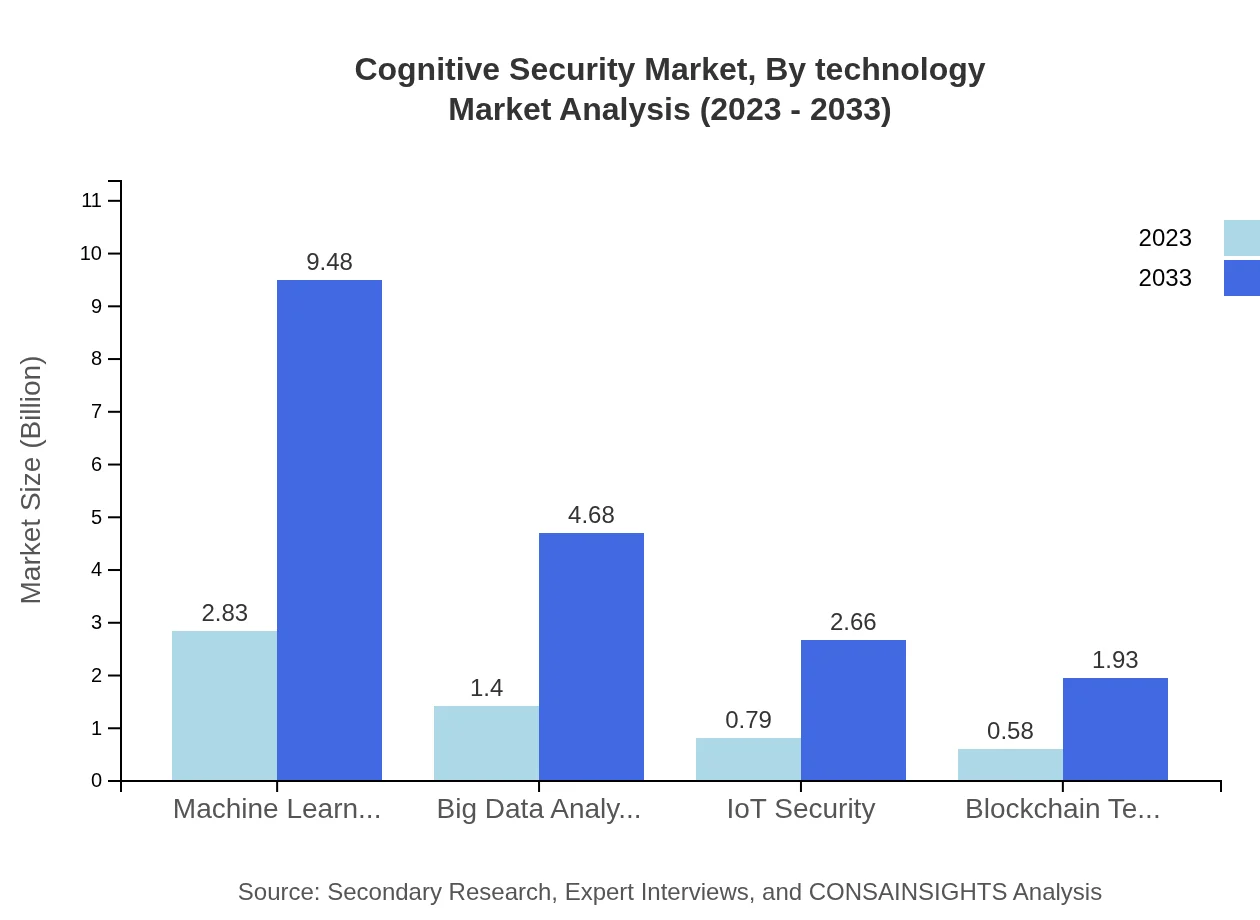Cognitive Security Market Report
Published Date: 31 January 2026 | Report Code: cognitive-security
Cognitive Security Market Size, Share, Industry Trends and Forecast to 2033
This comprehensive report provides insights into the cognitive security market from 2023 to 2033. It analyzes current trends, market size, CAGR, segmentation, and regional performance, offering valuable data for stakeholders and decision-makers.
| Metric | Value |
|---|---|
| Study Period | 2023 - 2033 |
| 2023 Market Size | $5.60 Billion |
| CAGR (2023-2033) | 12.3% |
| 2033 Market Size | $18.75 Billion |
| Top Companies | IBM, Cisco Systems, FireEye, Symantec, Palo Alto Networks |
| Last Modified Date | 31 January 2026 |
Cognitive Security Market Overview
Customize Cognitive Security Market Report market research report
- ✔ Get in-depth analysis of Cognitive Security market size, growth, and forecasts.
- ✔ Understand Cognitive Security's regional dynamics and industry-specific trends.
- ✔ Identify potential applications, end-user demand, and growth segments in Cognitive Security
What is the Market Size & CAGR of Cognitive Security market in 2023?
Cognitive Security Industry Analysis
Cognitive Security Market Segmentation and Scope
Tell us your focus area and get a customized research report.
Cognitive Security Market Analysis Report by Region
Europe Cognitive Security Market Report:
Europe's market for cognitive security is expected to surge from $1.79 billion in 2023 to $5.98 billion by 2033, fueled by ongoing threats posed by cybercriminals and the region's strong emphasis on data protection regulations (like GDPR), fostering a proactive approach towards cybersecurity.Asia Pacific Cognitive Security Market Report:
In the Asia Pacific region, the cognitive security market is projected to grow from $0.98 billion in 2023 to $3.28 billion by 2033. Factors such as rapid digitalization, increasing internet penetration, and growing cyber threats contribute to this growth. The government initiatives for cybersecurity and investment by key players in the region further enhance market prospects.North America Cognitive Security Market Report:
In North America, the cognitive security market is projected to increase from $2.05 billion in 2023 to $6.86 billion by 2033. The presence of major technology companies, coupled with stringent regulatory policies regarding data security, drives strong market demand for cognitive solutions.South America Cognitive Security Market Report:
The South American market is expected to expand from $0.28 billion in 2023 to $0.95 billion by 2033. Despite slower growth due to economic constraints, there is an increasing acknowledgment of cybersecurity importance, pushing organizations to invest in cognitive security solutions.Middle East & Africa Cognitive Security Market Report:
The Middle East and Africa cognitive security market is likely to grow from $0.50 billion in 2023 to $1.67 billion by 2033. Growing digital transformation efforts and government investments in cybersecurity infrastructure are key drivers of market expansion in this region.Tell us your focus area and get a customized research report.
Cognitive Security Market Analysis By Product
The cognitive security market is primarily categorized into three product segments: software, hardware, and services. In 2023, software solutions lead this market, accounting for $3.52 billion and expected to reach $11.78 billion by 2033, indicating a growing reliance on intelligent software-driven security solutions. Hardware sales can be attributed to surveillance and intrusion detection systems, with a market value of $1.28 billion in 2023, anticipated to grow to $4.29 billion by 2033. Services, including installation and consulting, are projected to increase from $0.80 billion to $2.67 billion, reflecting the rising demand for expertise in implementing cognitive security measures.
Cognitive Security Market Analysis By Application
Application-wise, the prominent categories include IT and Telecom, Banking and Financial Services, Retail, Government, and Healthcare. IT and Telecom is the largest segment, comprising $2.68 billion in 2023 and expected to grow to $8.98 billion by 2033, driven by the sector's dependency on secure communications and data protection. The banking sector is also significant, increasing from $1.23 billion to $4.11 billion over the decade as financial institutions enhance their security frameworks. Retail is seeing heightened attention towards cognitive security, transitioning from $0.56 billion to $1.88 billion as e-commerce continues to expand.
Cognitive Security Market Analysis By Deployment Mode
The cognitive security market can also be segmented based on deployment modes: on-premises, cloud, and hybrid. In 2023, on-premises solutions hold the largest share of $3.52 billion, showing a strong preference for in-house data protection due to security concerns. This is expected to grow to $11.78 billion by 2033. Cloud solutions amounting to $1.28 billion are projected to rise to $4.29 billion, driven by cost efficiency and scalability concerns. Hybrid deployment models, anticipated to grow from $0.80 billion to $2.67 billion, reveal a growing trend towards combining both approaches for fortified security.
Cognitive Security Market Analysis By End User
Cognitive security end-users include diverse industries such as IT and Telecom, Banking and Financial Services, Retail, Government, Healthcare, and more. The IT and Telecom segment currently holds a significant share amounting to $2.68 billion in 2023, reflecting the sector's critical need for robust cybersecurity measures against rising threats, projected to reach $8.98 billion by 2033. Banking and Financial Services follow closely, with growth from $1.23 billion to $4.11 billion, as organizations prioritize safeguarding financial data. The healthcare industry, facing increased cyberattacks, is expected to grow significantly as well.
Cognitive Security Market Analysis By Technology
The technology segment of the cognitive security market includes components such as machine learning, big data analytics, IoT security, blockchain technology, and network security. Machine learning, which facilitates advanced threat detection, dominates the segment, with an expected value of $2.83 billion in 2023, escalating to $9.48 billion by 2033. Big data analytics, vital for processing vast amounts of security data, is projected to grow from $1.40 billion to $4.68 billion over the decade. IoT security is garnering attention with forecasts ranging from $0.79 billion to $2.66 billion, responding to the surge in connected devices.
Cognitive Security Market Trends and Future Forecast
Tell us your focus area and get a customized research report.
Global Market Leaders and Top Companies in Cognitive Security Industry
IBM:
IBM leverages cognitive computing and AI solutions in its security offerings, providing threat intelligence and proactive cybersecurity measures to enterprise clients worldwide.Cisco Systems:
Cisco integrates advanced cybersecurity features into its products, providing innovative solutions that enhance cognitive security for digital infrastructures.FireEye:
FireEye specializes in cyber threat intelligence and response, delivering advanced security solutions to protect against complex vulnerabilities.Symantec:
Symantec focuses on endpoint security and data protection, employing machine learning techniques to strengthen cognitive security across diverse platforms.Palo Alto Networks:
Palo Alto Networks' solutions utilize cognitive technologies to enhance visibility and define automated responses to emerging threats.We're grateful to work with incredible clients.









FAQs
What is the market size of cognitive Security?
The cognitive security market was valued at approximately $5.6 billion in 2023 and is projected to grow at a CAGR of 12.3%, potentially reaching significant market heights by 2033.
What are the key market players or companies in this cognitive Security industry?
Key players in the cognitive security industry include major technology firms, cybersecurity companies, and software developers while focusing on innovations that utilize AI and machine learning to enhance security measures.
What are the primary factors driving the growth in the cognitive Security industry?
Growth in cognitive security is driven by increasing cyber threats, growing reliance on digital systems, the prominence of AI and machine learning technologies, and heightened regulatory compliance demands across industries.
Which region is the fastest Growing in cognitive Security?
The fastest-growing region in cognitive security is North America, expected to grow from $2.05 billion in 2023 to $6.86 billion by 2033, reflecting robust demand for advanced cybersecurity solutions.
Does ConsaInsights provide customized market report data for the cognitive Security industry?
Yes, ConsaInsights offers customized market report data tailored to specific needs in the cognitive security industry, aligning with client requirements and market dynamics.
What deliverables can I expect from this cognitive Security market research project?
Deliverables from the cognitive security market research project typically include comprehensive reports, data analysis, market forecasts, competitive landscape studies, and strategic recommendations.
What are the market trends of cognitive Security?
Trends in cognitive security include increased investment in AI and machine learning, greater integration of cloud-based security solutions, and enhanced focus on data security protocols across various sectors.

